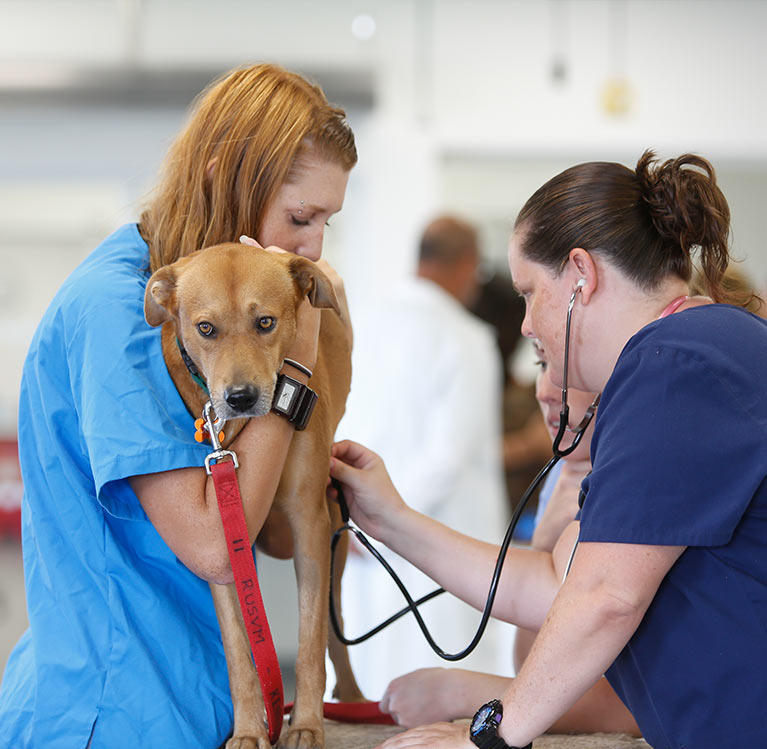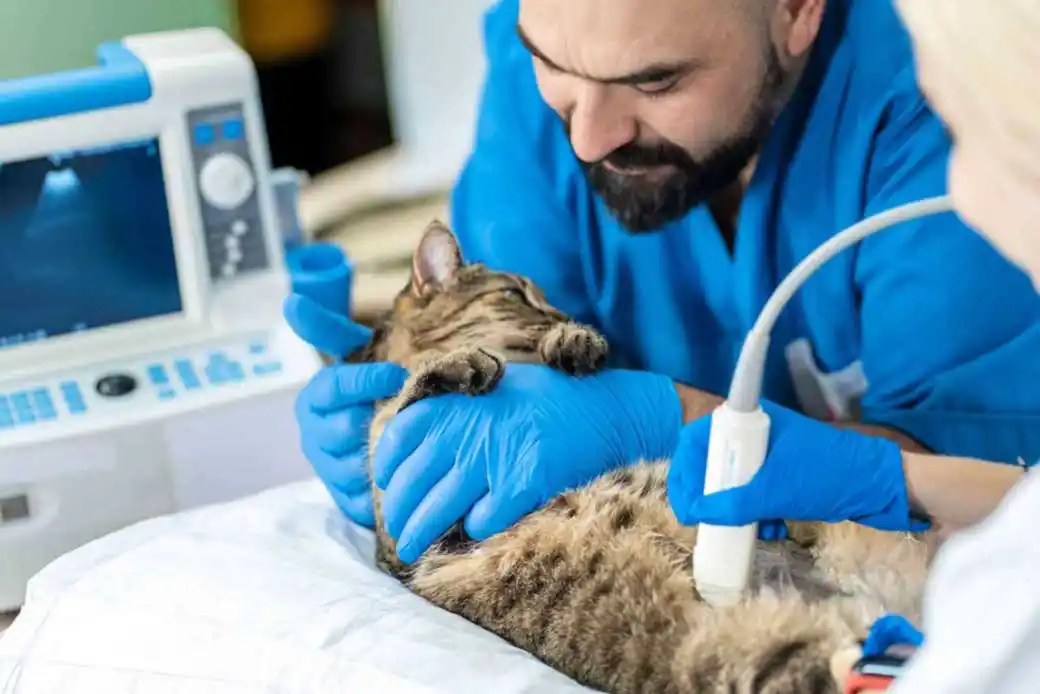Advances in Pet Cancer Surgery techniques
Wiki Article
Comprehensive Guide to the Services Used by a Veterinary Oncologist
Veterinary oncology encompasses a wide variety of services aimed at diagnosing and dealing with cancer in pets. Pet Cancer Surgery. Oncologists utilize advanced analysis methods and offer numerous treatment choices tailored to each pet's requirements. They also focus on encouraging care and offer valuable sources for pet dog owners. Comprehending these solutions is vital for making educated decisions. What particular elements of vet oncology can notably affect a family pet's treatment trip?Understanding Vet Oncology
Veterinary oncology is a specialized field concentrated on diagnosing and dealing with cancer cells in pets. This technique includes a variety of methods, from medical treatments such as chemotherapy and immunotherapy to surgical interventions aimed at eliminating lumps. Veterinary oncologists are educated to recognize the special manifestations of cancer cells in numerous species, allowing them to customize treatment plans to specific people.Along with traditional treatments, veterinary oncology stresses encouraging treatment, which plays a vital duty in enhancing the lifestyle for affected animals. This includes pain administration, dietary assistance, and palliative care options. Partnership with pet dog owners is critical, as they are important to decision-making regarding their pets' treatment courses. As research advancements, veterinary oncology remains to evolve, offering brand-new hope and enhanced results for family pets detected with cancer. Overall, this area is basic for dealing with the complexities of cancer in buddy pets.
Advanced Diagnostic Techniques
Advanced diagnostic techniques play a crucial duty in vet oncology, offering vital insights into the presence and level of cancer cells in pets. Imaging techniques such as ultrasound, CT scans, and MRI are frequently utilized to picture lumps and assess their characteristics. Additionally, biopsy treatments are vital for getting cells samples, permitting for conclusive medical diagnosis and customized therapy strategies.Imaging Modalities Utilized
Imaging techniques play an essential duty in the diagnosis and monitoring of cancer cells in pets. Vet oncologists use various advanced imaging methods to evaluate growth transition, visibility, and size. Radiography, or X-rays, uses a preliminary sight of bone and breast problems, while ultrasound supplies real-time imaging of soft cells, permitting detailed evaluation of interior organs. Calculated tomography (CT) improves visualization of intricate physiological structures and enables 3D reconstructions, assisting in exact tumor localization. Magnetic resonance imaging (MRI) is important for soft cells differentiation, specifically in mind growths. In addition, nuclear medicine methods such as positron emission tomography (ANIMAL) aid identify metabolic task within lumps. Collectively, these modalities improve analysis accuracy, directing reliable treatment methods for oncological people.Biopsy Procedures Discussed
Complying with the preliminary analysis via imaging methods, obtaining a clear-cut diagnosis frequently calls for cells tasting via biopsy treatments. Veterinary oncologists use various biopsy techniques based on the tumor's place and characteristics. Fine needle aspiration (FNA) is a minimally invasive technique that draws out cells for cytological examination, ideal for shallow masses. Core needle biopsies offer larger cells examples and serve for deeper growths, enabling histopathological analysis. Surgical biopsies include excising a part or the whole tumor, assisting in detailed examination. These treatments not just validate the presence of cancer cells yet additionally assist identify its type and grade, directing treatment choices. Each biopsy method is selected meticulously to stabilize diagnostic precision with patient safety and security and convenience.Therapy Choices for Cancer Cells in Pets
When a pet dog is identified with cancer, a range of treatment alternatives end up being available to assist handle the condition and improve lifestyle. Vet oncologists usually recommend a multidisciplinary approach tailored to the specific family pet's needs, which might include surgical procedure, radiation therapy, immunotherapy, or alternate therapies.Surgical treatment is commonly employed to eliminate tumors and afflicted cells, potentially resulting in complete remission in many cases. Radiation therapy aims to target and ruin cancer cells, minimizing lump size and reducing symptoms - Veterinary Cancer Specialist. Immunotherapy harnesses the family pet's immune system to deal with cancer better, while alternative therapies could consist of acupuncture or organic supplements to support general health and wellness
Each therapy alternative carries its own benefits and risks, and vet oncologists function very closely with animal owners to create a detailed strategy that straightens with the pet's particular medical diagnosis and the owner's dreams. The utmost objective is to boost the pet dog's convenience and quality of life throughout their cancer cells trip.
Radiation treatment for Animals
Chemotherapy is a typical therapy choice for family pets detected with cancer cells and is typically made use of in combination with various other treatments detailed by vet oncologists. This therapy includes the management of certain drugs made to destroy and target cancer cells, therefore reducing lump size and stopping the spread of the disease. Vet oncologists tailor radiation treatment protocols based upon the kind of cancer, the animal's overall wellness, and the wanted treatment outcome.Negative effects can happen, as these medications may likewise affect healthy cells. Usual responses include nausea, vomiting, and momentary modifications in appetite - Board Certified Veterinary Oncologist. Veterinary oncologists are equipped to handle these adverse effects properly, making certain the family pet's comfort throughout the therapy process. Normal monitoring with blood examinations and follow-up consultations is necessary to assess the family pet's response to chemotherapy and make essential adjustments. Ultimately, radiation treatment can provide considerable advantages, improving the lifestyle for family pets dealing with cancer medical diagnoses

Radiation Therapy in Veterinary Medication
Radiation treatment acts as a reliable therapy option for pet dogs diagnosed with local growths, offering a targeted technique to cancer management. This technique uses high-energy radiation to harm the DNA of cancer cells, inhibiting their ability to multiply. It is particularly useful for growths that are not responsive to medical removal or for instances where surgical treatment might not be possible due to the tumor's place.Vet oncologists customize radiation protocols based upon growth type, area, and dimension, as well as the animal's total health. Therapy can be delivered through exterior beam radiation or brachytherapy, each with distinctive advantages. Commonly, multiple sessions are required to make best use of effectiveness while minimizing adverse effects.
Although animals may experience short-lived reactions such as skin irritation, the overall objective is to shrink lumps and reduce signs, inevitably boosting the pet's prognosis and lifestyle. As necessary, radiation treatment plays an essential role in detailed cancer cells treatment.
Palliative Treatment and High Quality of Life
Palliative care in veterinary oncology concentrates on enhancing the lifestyle for animals encountering incurable ailments, ensuring convenience and self-respect in their last days. This specialized approach focuses on discomfort administration, sign control, and emotional assistance. Vet oncologists evaluate each family pet's specific requirements, tailoring treatments to relieve pain and improve overall health.Methods may include carrying out medicines for discomfort alleviation, managing nausea or vomiting, and resolving various other upsetting signs. In addition, nutritional assistance is frequently offered to maintain stamina and boost appetite. The emotional facet of palliative treatment is similarly important; developing a tranquil atmosphere aids minimize stress and anxiety for both pet dog and owner.
Eventually, the objective of palliative treatment is to enable family pets to appreciate their staying time with as much happiness and self-respect as feasible. By concentrating on comfort and quality of life, vet oncologists play an essential role in making sure that pets and their households browse this tough journey with empathy and understanding.
Support for Animal Owners Throughout Treatment

Emotional Advice for Owners
Charting the psychological landscape throughout a pet dog's cancer treatment can be an overwhelming experience for proprietors. The uncertainty surrounding medical diagnosis and prognosis can lead to feelings of stress and anxiety, sadness, and vulnerability. Veterinary oncologists recognize the importance of psychological assistance and usually provide assistance to help owners navigate this tough journey. Communication is important; reviewing treatment alternatives and possible end results can reduce some fears. Additionally, providing confidence that psychological responses are valid fosters a supportive atmosphere. Numerous oncology centers may also suggest support groups or counseling services tailored for pet owners, helping with shared experiences. Urging proprietors to focus on self-care throughout this time around is vital, as their psychological well-being straight influences their pet dog's convenience and total therapy experience.
Resources and Educational Materials
Guiding with the intricacies of a pet's cancer therapy can be daunting for owners, making accessibility to trusted sources and academic materials vital. Veterinary oncologists usually supply a range of handouts, sales brochures, and online materials that discuss therapy alternatives, potential negative effects, and care approaches. These sources assist debunk the process and encourage animal proprietors to make informed choices. Additionally, numerous oncology facilities provide accessibility to support groups and discussion forums where proprietors can get in touch with others dealing with comparable difficulties, promoting a feeling of community. Educational webinars and workshops carried out by vet professionals additionally boost understanding, making sure that proprietors are well-equipped to browse their family pet's trip through cancer cells treatment with self-confidence and understanding.Regularly Asked Questions
Exactly How Can I Prepare My Family Pet for a Vet Oncology Go To?
Preparing a family pet for a vet oncology browse through involves gathering medical records, keeping in mind signs, and making certain the pet is comfortable. A tranquil disposition and familiar things can help reduce anxiousness during the consultation.What Are the Signs My Animal May Have Cancer Cells?
Signs that a pet may have cancer cells include inexplicable weight reduction, persistent vomiting or diarrhea, uncommon swellings Board Certified Veterinary Oncologist or swellings, sleepiness, modifications in hunger, problem breathing, and modifications in actions. Motivate veterinary focus is vital.Just How Can I Assistance My Pet Dog Mentally During Treatment?
Sustaining a pet psychologically during therapy includes giving comfort, preserving regimens, supplying mild affection, and guaranteeing a calm setting. Engaging in silent play and normal friendship helps reduce stress and cultivates a feeling of safety and security.Are There Different Therapies for Pet Dogs With Cancer?
Alternative treatments for animals with cancer consist of acupuncture, herbal therapies, and nutritional support. These approaches might match standard therapies, promoting general well-being. Consulting with a vet is necessary for reliable and safe assimilation of alternate treatments.What Expenses Should I Expect for Veterinary Oncology Providers?
The expected costs for vet oncology services can vary considerably, usually influenced by diagnostics, therapies, and recurring care. Family pet proprietors ought to prepare for costs ranging from examinations to specialized treatments, showing the intricacy of cancer administration.Cooperation with pet proprietors is crucial, as they are important to decision-making concerning their animals' therapy courses. Each treatment choice lugs its own advantages and risks, and vet oncologists function closely with animal proprietors to develop a thorough plan that lines up with the pet dog's specific diagnosis and the owner's desires. Animals might experience short-lived reactions such as skin inflammation, the total purpose is to reduce growths and relieve symptoms, eventually enhancing the animal's prognosis and high quality of life. Support for family pet owners during treatment is important in guiding with the psychological challenges associated with an animal's cancer diagnosis. Preparing a family pet for a veterinary oncology see includes celebration clinical documents, keeping in mind signs, and guaranteeing the pet is comfortable.
Report this wiki page